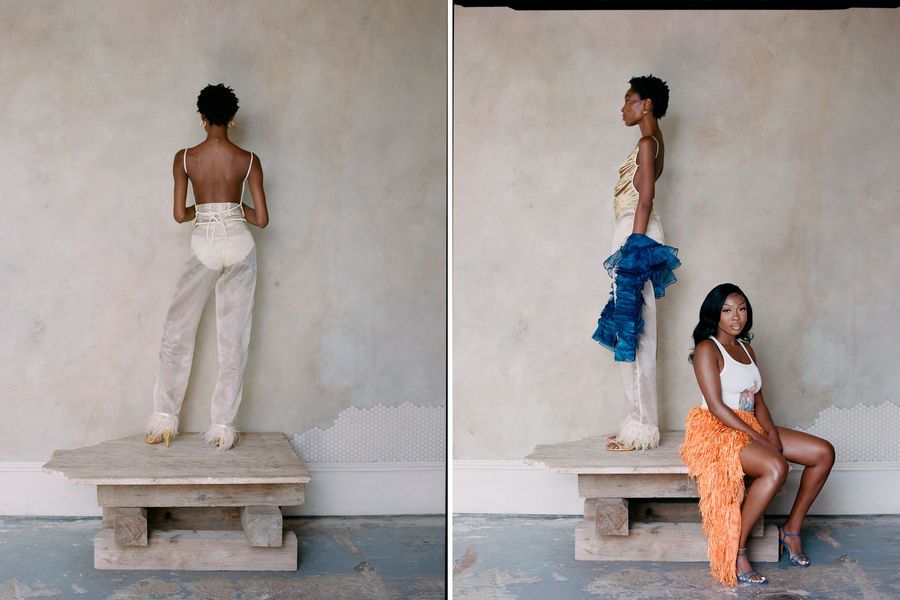A smart designer will often create one signature piece, something easily recognizable that can be widely disseminated — like Dior’s Bar Jacket, or, more recently, Telfar’s “Bushwick Birkin.” For Tia Adeola, that piece was a ruffled top.
Adeola, who is just 23, first started making clothes in her dorm at the New School in 2016 under the name Slashed by Tia. She sold them on Snapchat and Instagram, and soon she had designed her calling card: a cropped, Renaissance-inspired piece that brimmed with sexiness and joy, often worn with a matching and equally romantic tulle bottom. The look went viral, catching the attention of celebrities like Dua Lipa, SZA, Gigi Hadid, and Kali Uchis. To fashion insiders, she soon became a household name.
Now, Adeola is trying to reach everyone else. While she appreciated the sudden attention and celebrity endorsements, she says, the experience made her crave a reintroduction — and a wider audience. She rebranded her line as simply “Tia Adeola” and debuted her eponymous fall 2020 collection at the beginning of the year. It was a first step in the direction of her goal: to become a full-fledged luxury designer who dresses women with every kind of body. “What’s important for me now is making clothes that normal women love and feel confident in,” she told the Cut. “What really drives me is, say, a 25-year-old nurse who wants to look good on the weekends when she’s free. So then she comes to me. That’s who motivates me.”
Still, parts of Slashed by Tia live on. Her original ruffled top is still available for $100 on her site, and a set with a matching skort is $200. And she’s still a self-proclaimed art-history nerd. “I always refer back to Renaissance art before I go into my creative process,” she said. “I’ve always spoken about how Black people are missing from these images.” Her work continues to recontextualize this period of art history by inserting and celebrating Black bodies. Her fall 2020 runway had a majority of Black models of all sizes and gender expression wearing a 26-look collection that expanded upon and refined her sheer and ruffled motifs. Her next collection will be released sometime in October, intentionally outside of the traditional fashion calendar.
Lately, Adeola has been making face masks (ruffled, of course) and “Black Jesus” tank tops. “I’ve been wanting to build on that. I wonder what other figures I can make more relatable to us,” she said. “For me, it’s very important for the next generation of kids to have things like that to refer back to, even if it’s through clothing.”
Adeola’s intentions go even further than entering the luxury market and reworking iconography. When lockdown started, she returned to her hometown in Lagos, Nigeria, where she began training tailors to manufacture her face masks. “It feels really good to know that I’m taking the money back home and creating jobs,” she said to the Cut. “I’m hoping to do everything out of Lagos, but I’m starting small and doing what I can for the time being. There’s been a lot going on in the world. So if I’m going to take part in fashion, do I have something meaningful to say? Do I have something meaningful to give to people?”




